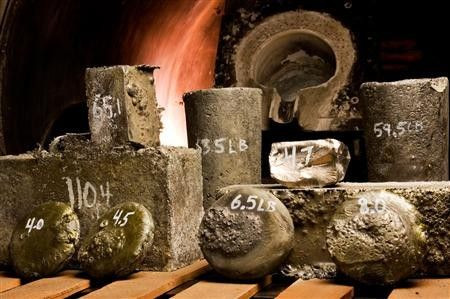China to publish new regulations on rare earth minerals

China will soon publish new regulations to increase supervision of the country's rare earth industry in a move that is likely to drastically change the landscape of the sector, the China Securities Journal informed on Wednesday.
The journal reported that officials will soon come up with new rules to make better use of natural resources, reduce pollution, control the scale of mining and adopt more advanced mining technologies.
The rules will also allow consolidation of the country's rare earth industry. Besides, officials also informed that the regulator may demand building rare earth reserves for comprehensive utilization.
China and Rare Earth Minerals
The undisputed hold that China has over rare earth minerals is well known and documented. Although countries like India and South Africa have considerable deposits of rare earth concentrates, they are dwarfed in amount by China which currently controls over 90 percent of the global supply. As such, most of the countries in the world depend on China for their rare earth requirements.
The Wall Street Journal however reported that U.S. Rep. Mike Coffman called China an unreliable trade partner in rare-earth minerals and said he plans to introduce a bill in coming weeks that may require the U.S. military to hold an unspecified amount of such elements. The prime aim of the legislation is to establish a competitive supply chain in the U.S. which may include mandating a stockpile or setting conditions on when to form one.
Most of the world's rare earth minerals like dysprosium are found in reserves within the country particularly in parts of Inner Mongolia.
This group of 17 elements, sometimes referred to as 21st century gold, has several high-tech applications as in hybrid car batteries and laser-guided weapons. They have very vital industrial and military use as well, including in production of night goggles and wind turbines.
Increasing Demand
In recent years, there has been an increasing demand for these minerals worldwide and speculations prevail that the demand will exceed supply by 40,000 tonnes annually unless new sources are found.
In order to protect the environment and prevent undue exploitation of the scarce resources, China passed an order in September 2009 to reduce its export levels to 35,000 tonnes per year from 2010-2015.
On October 19, 2010 China Daily reported that the country will further reduce its rare earth quotas by around 30 percent. This was followed by another announcement in 2010 wherein the country said that the first round of export quotas in 2011 for rare earths would be 14,446 tons marking a 35% decrease from the previous first round of quotas in 2010.
With the country working strongly to stabilize the industry, much depends on the new legislations aimed to promote better use and preservation of the rare earth resources.
© Copyright IBTimes 2024. All rights reserved.





















